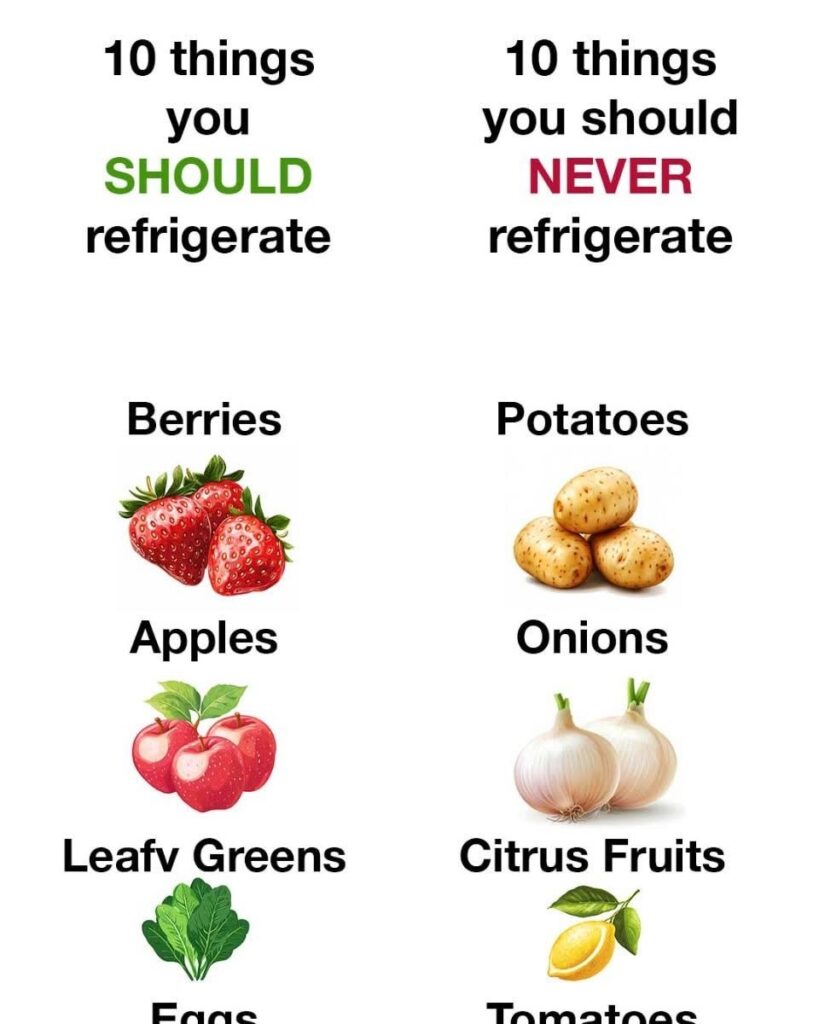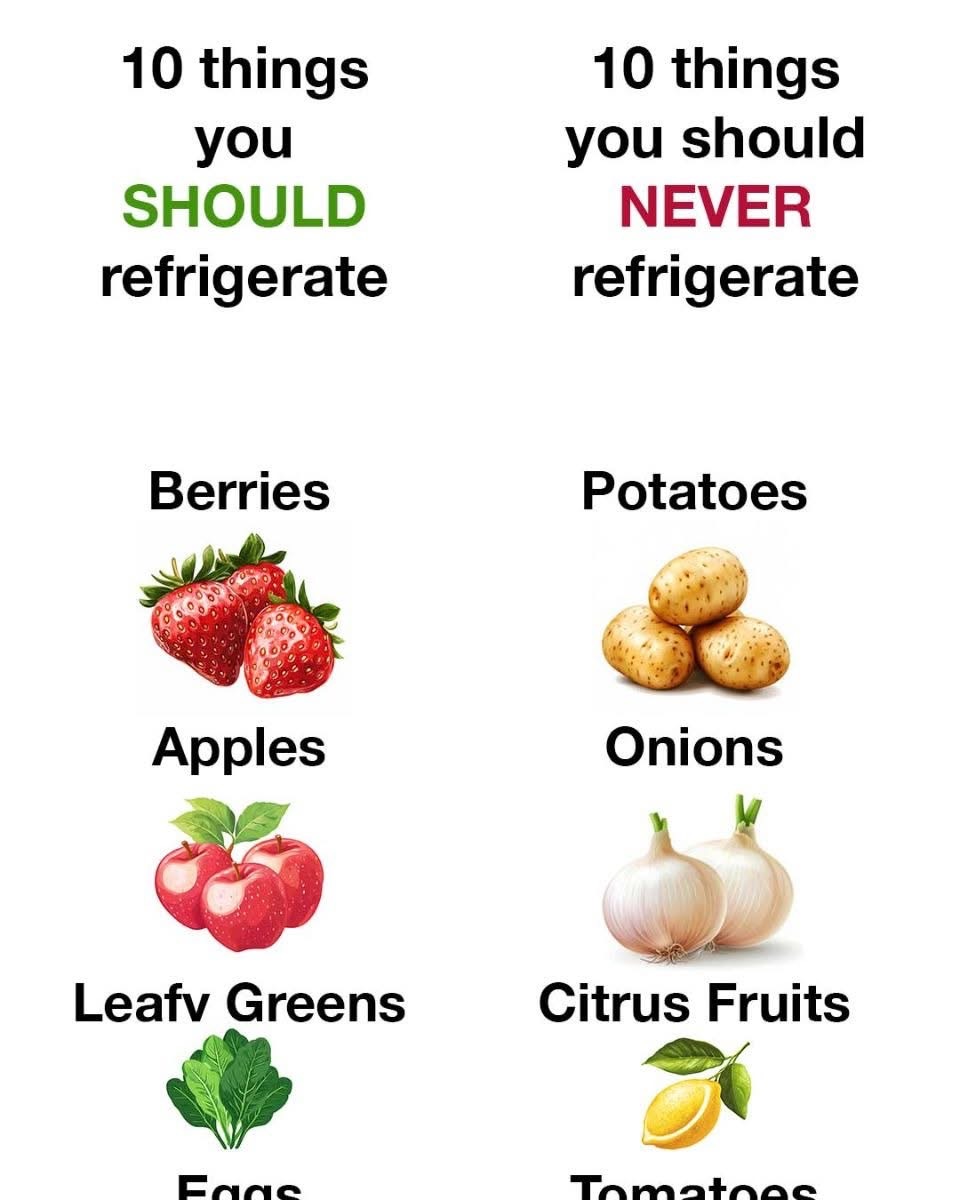10 Things You Should ALWAYS Refrigerate

These items spoil quickly or lose quality if not kept cold:
- Milk & Dairy Products
Including cheese, yogurt, cream, and butter (though butter can be left out for a day or two). - Eggs (in the U.S. and similar countries)
Washed eggs must be refrigerated to prevent bacterial growth. - Cooked Leftovers
Store within 2 hours of cooking to prevent spoilage and foodborne illness. - Fresh Meat, Poultry & Seafood
Keep tightly sealed and cold; use or freeze quickly. - Cut Fruits & Vegetables
Sliced produce (like melon, cucumber, or carrots) should be kept cold to stay fresh. - Condiments with Fresh Ingredients
Like mayonnaise, pesto, or fresh salsa. - Opened Wine (especially white & rosé)
Slows oxidation and keeps flavor longer. - Tofu & Plant-Based Milks (after opening)
Spoil quickly at room temperature once opened. - Leafy Greens & Fresh Herbs
Keeps them from wilting or spoiling early. - Fresh Berries (short term)
They mold fast at room temp—store in a breathable container.
10 Things You Should NEVER Refrigerate**
These items can lose flavor, texture, or ripening ability in the fridge:
- Tomatoes
Refrigeration ruins their flavor and texture—store at room temp. - Potatoes
Cold temps turn starch to sugar, altering taste and texture. - Onions
Fridge humidity makes them mushy and moldy—store in a cool, dry place. - Garlic
Refrigeration causes sprouting and rubbery texture. - Bread
It goes stale faster in the fridge—freeze if you won’t eat it soon. - Honey
Cold temps cause crystallization—store in the pantry. - Bananas
The peel turns black and the ripening process halts in the fridge. - Avocados (unripe)
They won’t ripen properly in cold—only refrigerate when fully ripe. - Coffee (beans or ground)
Condensation and cold dull flavor—store in airtight containers at room temp. - Hot Sauce
High vinegar and salt content keep it shelf-stable.
